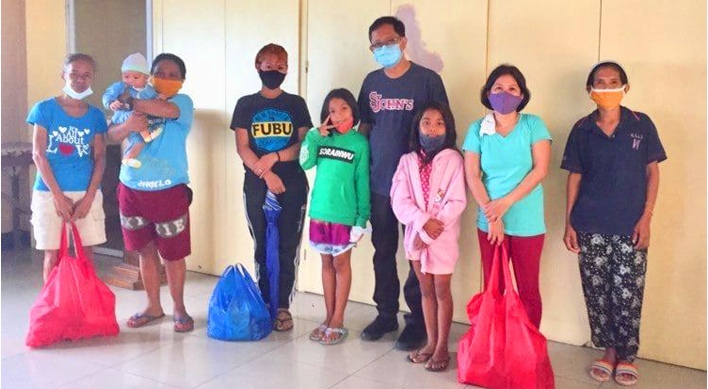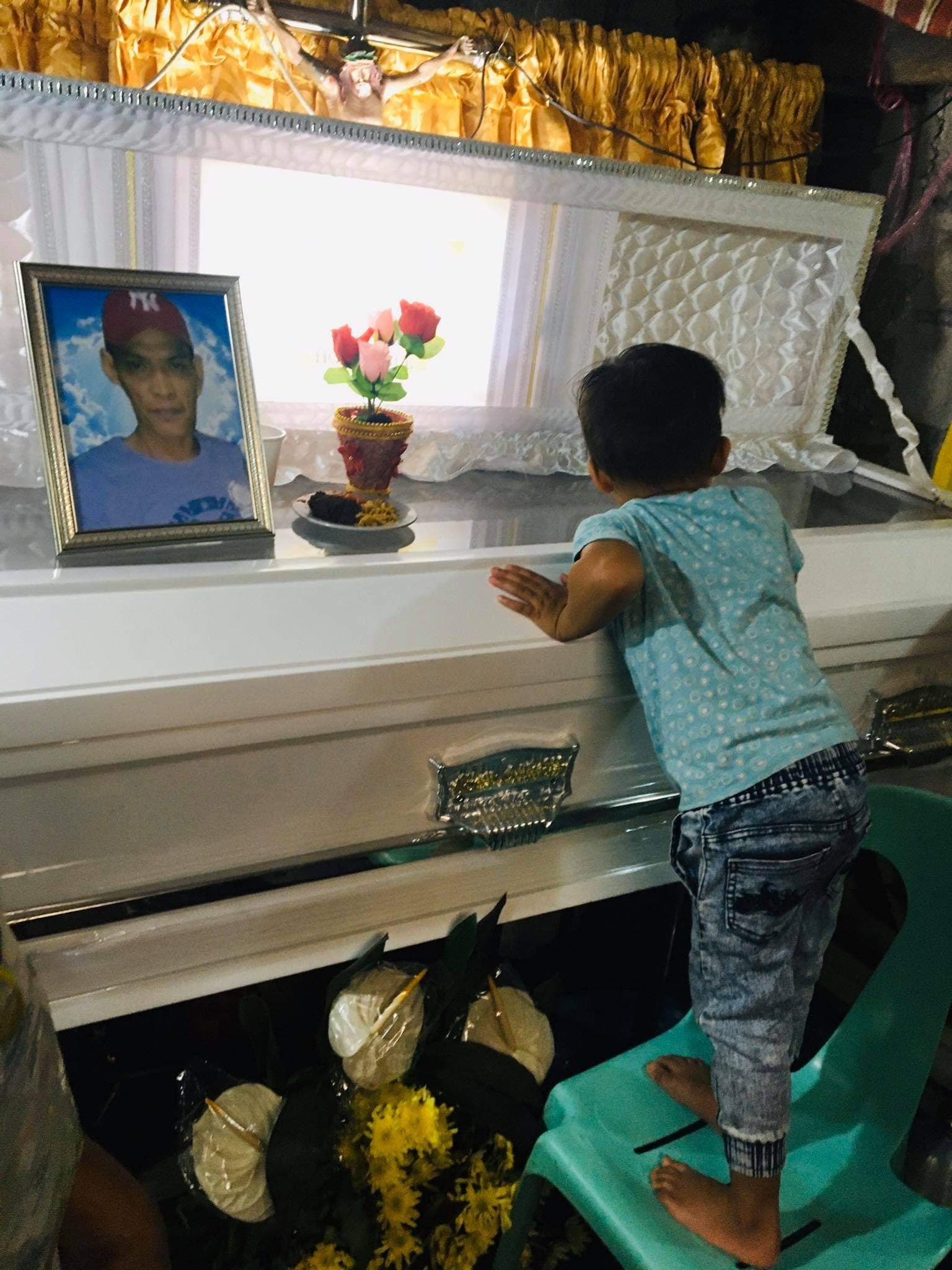CRUCIFIED PEOPLES
An All Souls Day Reflection
Because of the lockdown, we temporarily stopped our regular meetings with the orphans and widows in Payatas. But to celebrate the Day of the Dead, I had an intimate conversation with the families of the recent victims of the extrajudicial killings in the time of the pandemic. I heard about them but I have not met them personally; the community quarantine made it impossible. At the beginning of 2020, we already had three in Payatas. During the lockdown, we have additional three.

April 15, 2020. Vicente was sorting out garbage in his small junkshop. It was almost 7:00 in the evening and his wife wanted him to stop and call it a day. But he wanted to finish the work so that he can sell it the next day. It has been a month now since the lockdown and he was hoping to get something for his family. Three motorcycles who were riding in tandem suddenly stopped by their shops. All of the three pulled their guns and shot him. Eight bullets entered his body. One went to his wife who was at his side working with him. They turned his body over and made sure that he was dead. The other one went to the wife who ran at the sides. She thought that it was also her last. But she asked help from him. The gunman turned away. They went back to their motorcycles and rode to nowhere. No one was there to help them. It was getting very dark.
October 16, 2020. Reneboy was once a "palero", a cargo assistant of the garbage truck. He was into drugs earlier but changed his life when he entered a born-again church. He met his common law wife there and had two children with her, now in their elementary years. They separated and moved on to another relationship. On the night of October 16, he was just standing by a store nearby. One gunman in motorcycle pulled his trigger at him.
October 19, 2020. Jennilyn had a colorful life. Born in Zambales, she left her parents at a very early age, and was reared by her grandparents in Manila. But the both died when she was still young. So she lived with relatives and, most often, with friends. She had many friends, her aunt recalled. She met a married man, lived with him, and delivered her baby boy in June, at the middle of the pandemic. On October 19, the young mother Jennilyn was playing ML (Mobile Legends) by the road side. A group of armed men wearing bonnets and riding in motorcycles just pulled over and shot her. She was just left there, bleeding to death. Her aunt now takes care of her five month old boy. As I was talking to her aunt, it was a painful sight to see the clueless baby in her arms who will grow up not being able to know whatever happened to her mother and why.
Unlike before, these deaths are not "directly" done with the police. (The PNP only owned up to 5,856 deaths during drug "buy-bust" operations, as of their last report.) These are called "Deaths Under Investigation" (DUI) and there are more than 30,000 of them since the start of Duterte's War on Drugs. But there is no such investigation that is ongoing. No police even came to investigate their cases, the widows told me. Things go on as if nothing happened. That is how this government wants it to be. Beyond masks and social distancing, this is in fact the new normal.
We are all sad that we cannot go to the cemeteries to visit our dead this year. But there are people who, even as they are alive, live in real situations of death. They find it difficult to bury their dead after a brutal death during the strictest lockdown in the world. And once they were laid there in their lowly resting places, after a lonely funeral of five to six people, these widows or mothers need to go on with their lives regardless of the pain still deep in their hearts. What courage there is to live in the midst of death!
The Latin American theologian - Jon Sobrino - talks about the “crucified peoples”. The victims were slaughtered peoples. Their left-behind families are crucified peoples. They are taken for granted; most often despised and jeered at – "addict yata, nagbenta siguro, baka may atraso, pasaway kasi!"
While talking to them, I remember the “Suffering Servant” in Isaiah: “But he was wounded for our transgressions, crushed for our iniquities; upon him was the punishment that made us whole, and by his bruises we are healed.” (Isaiah 53: 5).
The “Servant of Yahweh” finds himself in a paradoxical situation. On the one hand, he was totally deformed by the torments done on him. Considered a sinner by all, despised and derided, God has abandoned him in the eyes of his tormentors. On the other hand, by his wounds we are healed. Jesus was seen as the Isaiah’s Suffering Servant.
But what is true for Jesus is also true for the crucified peoples. “The crucified people has a twofold thrust: it is the victim of the sin of the world, and it is also the bearer of the world’s salvation” (Sobrino). This same crucified people besides being the main object of the effort of salvation, it might also “in its very crucified situation be the principle of salvation for the whole world.”
Today, as we pray for our dead, I request you to remember the really deformed victims who has become the easy scapegoats of this violent administration. May they rest in God’s peace.
And may those of us who are living never rest to fight for justice in behalf of these crucified peoples so that we can bring Jesus down from his cross.
Daniel Franklin E. Pilario, CM
St. Vincent School of Theology
Adamson University
danielfranklinpilario@yahoo.com
11.02.2020



